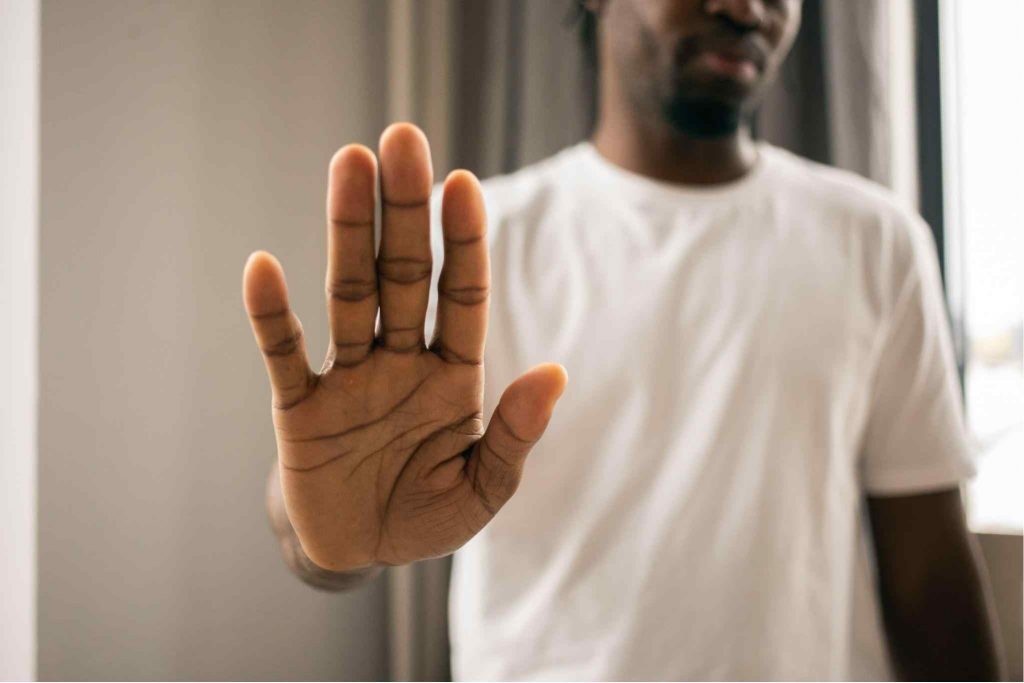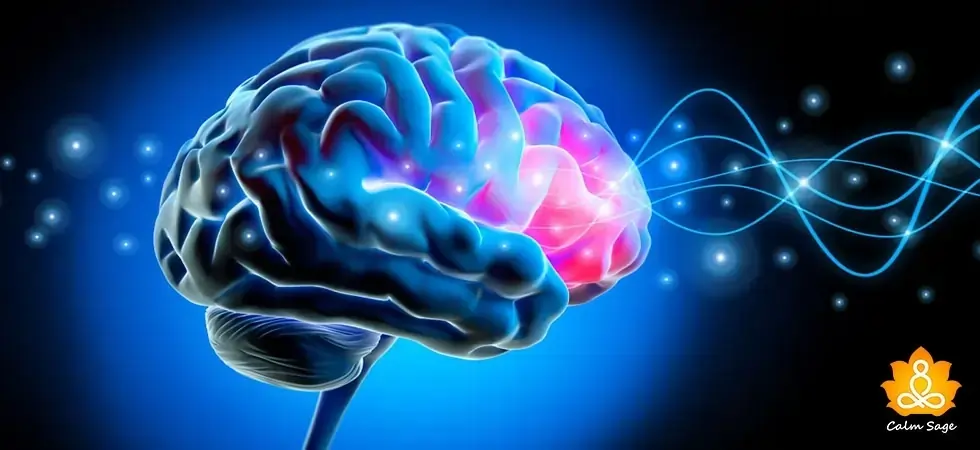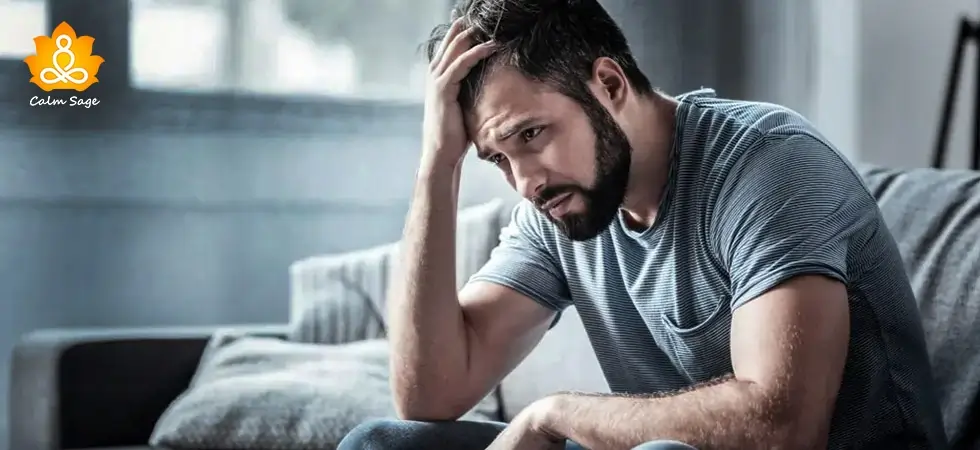Are You Using Denial As A Defense Mechanism? Learn Its Signs, Impact, And More

When something goes wrong, our instinct tells us to deny it. It tells us to ignore the situation, mainly to avoid the anxiety and the subsequent feelings that follow anxiety. Denial, out of all defense mechanisms, seems easy but is it really that effective or even healthy?
Denial as a defense mechanism is when we choose to ignore reality to avoid getting stuck in the loop of anxiety, panic, and even grief. It’s when you use denial to cope with your distressing emotions and just refuse to acknowledge the consequences of reality.
When you’re in denial, it often means that you are struggling to acknowledge a situation that is potentially stressful or too overwhelming. While this denial defense mechanism can help you adjust to the sudden shift or change in your life, it can eventually cause more problems for you in the long run.
Denial might give you the time to accept and adapt to your new normal but it can also stop you from getting the help you might need.
In this article, let’s understand how denial as a defense mechanism works, the signs, the impact, and how to move past denial.
What Is Denial?

Denial, first and foremost, is one of the five stages of grief that Dr. Elisabeth Kübler-Ross first put forward. Denial is a process that can help us come to terms with the turbulent emotions that often follow a loss, grief, or trauma. Denial is an unconscious defense that gives us time to adjust to the trauma.
Denial is a normal response that follows trauma or pain. When you’re in denial for a long term, then it turns from a coping mechanism to an unhealthy response. While it’s a normal human response, it isn’t a permanent solution or answer. To get the right help, one must address the problem and denial makes you shy away from the problem.
Although, denial can be a flexible approach to come to terms with a loss, addiction, illness, or even stress. But, it can also blind you from accepting the truth. When you refuse to face the truth, you refuse to acknowledge the problem.
Denial As A Defense Mechanism
Sigmund Freud was the first to talk about defense mechanisms. He explained how defense mechanisms helped us. For example: If you were walking alone at night and heard footsteps, your subconscious would fill your body with anxiety while your handler (or Ego) would try to rationalize the situation. Denial, here, is one of your Ego’s defense mechanisms. It will work to help you rationalize the situation before you jump to a conclusion.
Denial also protects you from feeling overwhelmed. It can not only help you process grief, pain, and trauma in little steps rather than hitting you at once. Denial as a defense mechanism protects your mind and body from going into shock.
Signs Denial Is Your Defense Mechanism

Here are a few signs that might indicate that you or someone you know has denial as a defense mechanism:
- You refuse to acknowledge the problem (or you minimize the problem)
- You try to rationalize by using excuses
- You constantly lie to yourself about your actions to avoid the reality
- You find yourself blaming others for the situation
- You continue with your actions even though you’re aware of the consequences
- You keep dragging out the problem (or keep saying, you’ll eventually address the issue)
- You don’t let yourself think about the problem or situation
- You feel hopeless and helpless
- You don’t do anything to address the problem
- You brush off other’s concerns for you
Why Do You Deny?
Just like other defense mechanisms, denial works to protect your mind and body from experiencing overwhelming emotions like anxiety and fear. Sometimes, it can be a way to avoid facing stress or uncomfortable emotions but other times, it can be a way to refuse to admit that there’s something wrong.
More often than not, denial can be commonly found in people with mental health disorders such as substance abuse disorder, alcohol addiction, and narcissistic personality disorder. Here are a few examples of people using denial as a defense mechanism:
- An individual may deny having an addiction disorder because they have to go to work and function normally.
- An individual may refuse to accept a loved one’s death to cope with the loss. Here, denial defense can be a part of the five stages of grief.
- An individual may use denial as a defense for their actions after emotionally hurting their loved one. They might try to blame others for their actions.
- An individual may use denial as a defense mechanism after being diagnosed with a chronic illness or a mental health disorder because they are afraid to face the reality.
The Impact Of Denial
Denial might be an unhealthy coping mechanism but it’s not always that. Sometimes, the denial defense can help you deal with shocking news and come to terms with the sudden and unexpected change thrust upon you.
For instance, you may deny a health problem because you don’t want to come to terms with the idea of being chronically ill. Instead of worrying, denial can allow you to come to terms with the situation and stay calm while you reach out to a physician.
Where denial can be unhealthy and downright harmful can be when, for example, you deny being seriously ill but refuse to consult a physician. This denial will eventually take a toll on your health and worsen your already declining condition.
Similarly, when you deny being anxious or depressed, you might refuse or delay reaching out to a professional for treatment.
How Do You Move Past Denial?

Moving past denial can depend on the situation. In some instances, you can overcome denial with time and social support but sometimes a professional intervention may be required. To help you come to terms with your reality, psychotherapy approaches such as psychodynamic therapy can help.
In psychodynamic therapy, you learn to identify various defense mechanisms, including denial. With a professional’s help, you work on improving your self-awareness and understanding of your actions. If you are using denial as a defense mechanism then it could be one that can prevent you from addressing a potentially harmful problem. If that’s the case, here are a few things you can do:
- Try to understand why you don’t want to address the problem
- Consider the consequences of avoiding addressing the problem
- Connect with a loved one – a friend, a family member, or a support group – who can give you an honest perspective on your situation
- Try to work on identifying the thinking that is causing your anxiety
- You can also work on some grounding techniques that can keep you grounded when you feel too overwhelmed
- Try journaling to examine your feelings such as fear and anxiety. This can help you address where these feelings are coming from and how you can address them instead of avoiding them
- Try to ask a professional for help. A mental health professional can help you understand your response and come up with healthier coping mechanisms
Denial is one of the most common defense mechanisms. Denial as a defense mechanism is when you refuse to acknowledge or ignore a situation that may cause you anxiety, fear, or panic. The right coping techniques can help you process these emotions more healthily. Denial, while not harmful, can prevent you from addressing a potentially harmful situation.
If you suspect yourself or a loved one of using denial as a defense mechanism, then it is suggested you reach out for support.
I hope this article helped you understand how the denial defense mechanism can impact your life. For more, you can write to us at info@calmsage.com or DM us on social media. You can also share your thoughts with us in the comments section below!
Take Care!




















